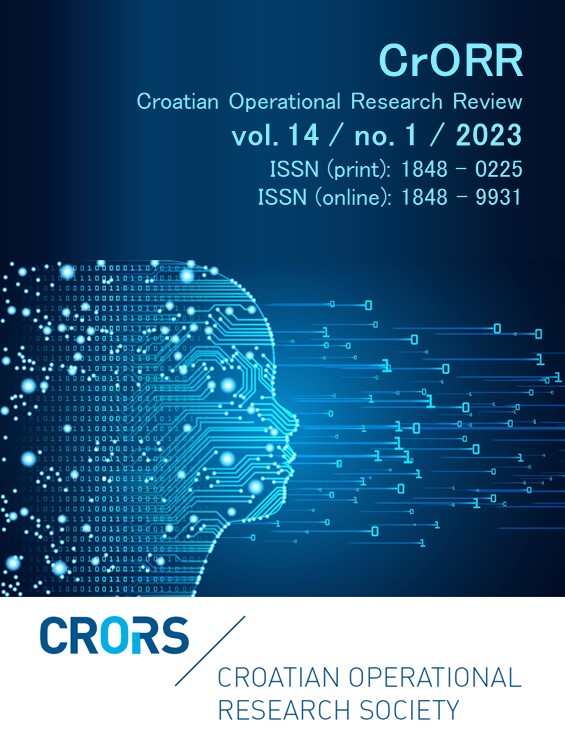Improving portfolio liquidity: MCDM approach to share selection on the Zagreb Stock Exchange
Abstract
This article describes how investors on the Zagreb Stock Exchange (ZSE) can use Multiple Criteria Decision Making (MCDM) to select shares for investment. Both financial and market liquidity criteria are used to compare different shares. Market liquidity criteria include the average number of daily trades and the average daily turnover on the regular market. These criteria help to determine the liquidity of shares in the secondary market, which is the main contribution of this research.The investment selection proposal is based on the PROMETHEE. The performance of the portfolio constructed using the Modern Portfolio Theory (MPT) was tested. Predictably, the inclusion of liquidity criteria in the share selection process resulted in an increase in the liquidity of the portfolio, an effect that is clearly evident after 2019. However, such a portfolio does not provide significantly different returns compared to a scenario where liquidity criteria are excluded from share selection process. Reading this paper provides an insight into how to make investment decisions based on criteria consistent with investors’ objectives in an developing capital market.
Downloads
Published
Issue
Section
License
- Authors retain copyright and grant the journal right of first publication with the work simultaneously licensed under a Creative Commons Attribution License that allows others to share the work with an acknowledgement of the work's authorship and initial publication in this journal
- Authors are able to enter into separate, additional contractual arrangements for the non-exclusive distribution of the journal's published version of the work (e.g., post it to an institutional repository or publish it in a book), with an acknowledgement of its initial publication in this journal.
- Authors are permitted and encouraged to post their work online (e.g., in institutional repositories or on their website) prior to and during the submission process, as it can lead to productive exchanges, as well as earlier and greater citation of published work (See The Effect of Open Access).


